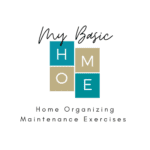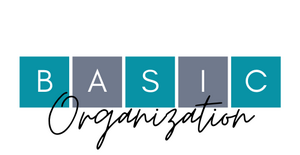The Psychology of Clutter
The Psychology of Clutter
When does clutter become a problem? The answer to this question is different for everyone. However, clutter becomes a problem for most people when one or more of the following situations arise.
- It is creating feelings of depression or anxiety.
- The need for more or better or newer things seems insatiable.
- It feels like you are losing control of your life as your possessions take over.
- The disorder of your living space prevents you from feeling comfortable or happy at home.
- You conflict with other household members over this issue.
- You’re ashamed to have friends and relatives over to the house because it’s such a mess, and you feel more isolated.
If you can relate to these situations, you can no longer ignore them. It’s time to take control and get organized.
Do you struggle with getting and staying organized?
 Are you afraid to start an organizing project just to be overwhelmed or lose motivation in the middle, to be left with even more chaos? You are not alone. That’s the fear of most people who don’t have time to allot to a big organizing project.
Are you afraid to start an organizing project just to be overwhelmed or lose motivation in the middle, to be left with even more chaos? You are not alone. That’s the fear of most people who don’t have time to allot to a big organizing project.
The new My Basic HOME is your Home Organizing Maintenance Exercise subscription service.
Your guide to better-organized spaces and the accountability to maintain them, delivered as a text message JUST FOR YOU! Get a message each weekday to prompt you into action. Get the support you need with expert advice from the Basic Organization team and other subscribers in a private Facebook group.
Subscribe by email
Enter your email address to subscribe to this blog and receive notifications of new posts by email.
Janet Schiesl

Janet has been organizing since 2005. She is a Certified Professional Organizer and the owner of Basic Organization.
She loves using her background as a space planner to challenge her clients to look at their space differently. She leads the team in large projects and works one-on-one with clients to help the process move quickly and comfortably. Call her crazy, but she loves to work with paper, to purge what is not needed and to create filing systems that work for each individual client.
Janet is a Past Board Member of the National Association of Productivity and Organizing Professionals and a Past President of the Washington DC Chapter of NAPO were she has been named Organizer of the Year and Volunteer of the Year.

Janet Schiesl
Janet has been organizing since 2005. She is a Certified Professional Organizer and the owner of Basic Organization.
She loves using her background as a space planner to challenge her clients to look at their space differently. She leads the team in large projects and works one-on-one with clients to help the process move quickly and comfortably. Call her crazy, but she loves to work with paper, to purge what is not needed and to create filing systems that work for each individual client.
Janet is a Past Board Member of the National Association of Productivity and Organizing Professionals and a Past President of the Washington DC Chapter of NAPO were she has been named Organizer of the Year and Volunteer of the Year.

There are so many factors that can cause clutter, and the way you’ve presented them is very easy to identify with.
Thanks Janet. These are issues that clients have told me they deal with.
These are all good red flags. I once heard another definition that has been helpful: “When you wouldn’t be able to put things away, even if you had the time and desire.”
Physical stuff should be in our spaces to enhance our lives, not detract from them. It’s good to know that help is available!
Seana, I like your definition. It makes so much sense and you are right. Our things should enhance our lives.
I agree! Clutter can easily create feelings of depression or anxiety. I also noticed that it creates a sense of shame.
Very interesting. I haven’t seen that.
I love how clearly you identified when clutter can become a challenge. What you described centers around the psychological aspects of clutter and how it can make us feel or prevent us from living the life we want. That’s why, as organizers, we often say, “It’s not really about the stuff.” It’s about so much more.
Oh yes! So much more. I find it interesting that sometimes there is no or little psychological aspect. I just met with a client today who is a little person – her whole family is little. There was a lot of “clutter” in her kitchen, but it was more situational because they can’t reach most of the upper cabinets. Therefore, there was a lot on the countertops.
You’re right about all of these reasons for clutter.
Of course, it can be such a vicious cycle. If someone is experiencing depression or (for example, social) anxiety, they’ll be less able to cope with maintaining systems to keep organized on their own, but the longer that goes on, the less likely that person will be to feel comfortable having others in their spaces, which might otherwise help them ameliorate their depression or anxiety. And of course, the “stuff” that people build up around themselves create the very walls between themselves and loved ones.
It begs the question, which came first the clutter or the depression? You are absolutely correct.